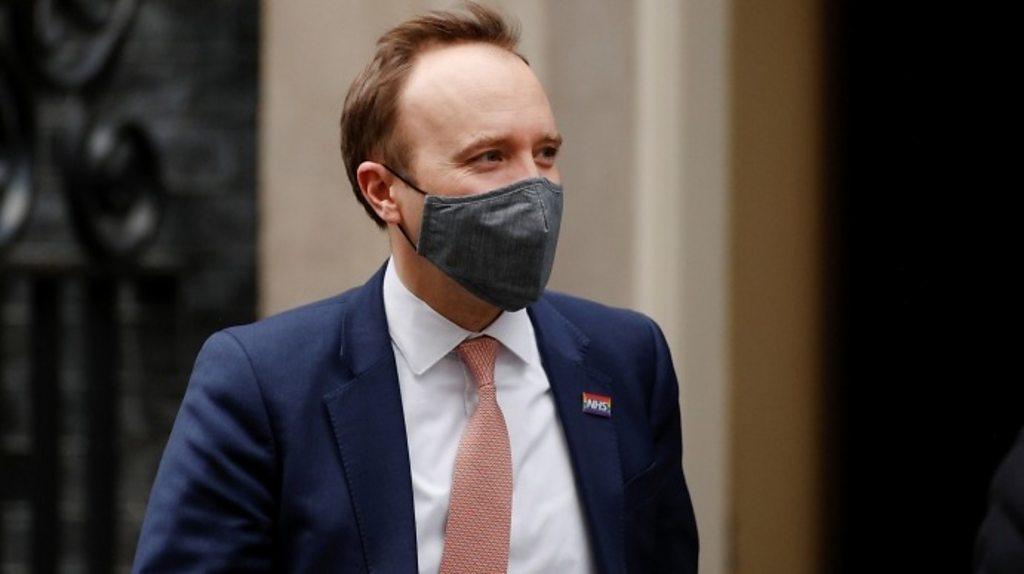Covid: NHS critical care staff 'traumatised' by pandemic
- Published

Nicki Credland says some staff are going to be too traumatised to continue working for the NHS after the pandemic
Critical care workers are dealing with "psychological trauma" during the pandemic which is only going to get worse, a nursing leader has warned.
Nicki Credland said the situation in hospital intensive care units (ICUs) was "desperate" and "like a war zone".
The University of Hull lecturer said she feared a mass exodus from the NHS as staff will be "traumatised".
The Department of Health and Social Care (DHSC) said mental health and wellbeing was a top priority.
Mrs Credland, who is chair of the British Association of Critical Care Nurses, said: "We always knew back in February and March that we were never going to have enough ICU nurses - we knew that from day one.
"But it's been exacerbated now, we've got significant staff sickness across the country through Covid, self-isolation and the psychological trauma."
How NHS nurses and doctors are struggling to cope with Covid as cases continue to rise in England
Mental health issues connected to working in critical care during the pandemic, including post-traumatic stress disorder (PTSD), are emerging, she said.
One nurse working on an ICU ward in London told her that "going on shift is like walking into Armageddon, it's like a war zone".
Mrs Credland said: "Already staff are presenting with PTSD and needing counselling [and] we are already seeing people start to have breakdowns."
She has warned some staff will be too traumatised to go work once the pandemic ends.
As of Thursday there were 26,500 Covid patients in hospital, meaning nearly a third of all people in hospital have Covid.
This increased by 50% since Christmas and is forecast to continue doing so.
Working in intensive care is always stressful due to the complex nature of patients' needs, but the pandemic had created "the perfect storm", Ms Credland said.
ICU nurses faced additional stresses including taking on the emotional burden of sitting with dying patients because their families are not allowed into hospital.
"We've got staff now who are on their knees...it's a dire situation at the minute," she said.
Chris Hopson, of NHS Providers, which represents hospital managers, has told the BBC the rising number of Covid cases was "very worrying" and had reached a "critical point", which was significantly affecting other services.
'Extreme circumstances'
Ms Credland believes the NHS will find a way to keep going but said it was "insulting" for people to clap on their doorsteps in support of the health service if they were not going to follow the rules and stay home.
"You should be staying home to protect the people you love, that's the reason you should be staying at home," she said.
"And just have respect for people working in extreme circumstances trying to do the best they can."
A DHSC spokesperson said: "Supporting the mental health and wellbeing of our staff is a top priority, and we understand the huge pressures they face - particularly during this unprecedented pandemic.
"We have invested over £1.5m in research into the impact of the pandemic on the mental health of NHS staff alongside £15m to support the mental health and wellbeing of staff and develop a national support service for critical care staff who are most vulnerable to severe trauma.
"We would urge anyone struggling to come forward and speak to a colleague, their occupational health team, or to call the helpline so that they can get the help they need."

Follow BBC Yorkshire on Facebook, external, Twitter, external and Instagram, external. Send your story ideas to yorkslincs.news@bbc.co.uk, external.
Related topics
- Published7 January 2021
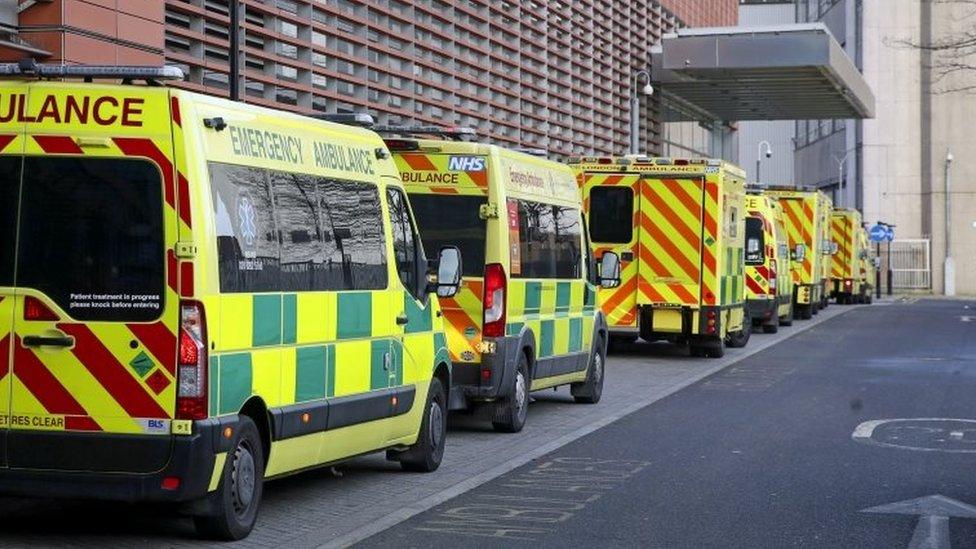
- Published8 January 2021
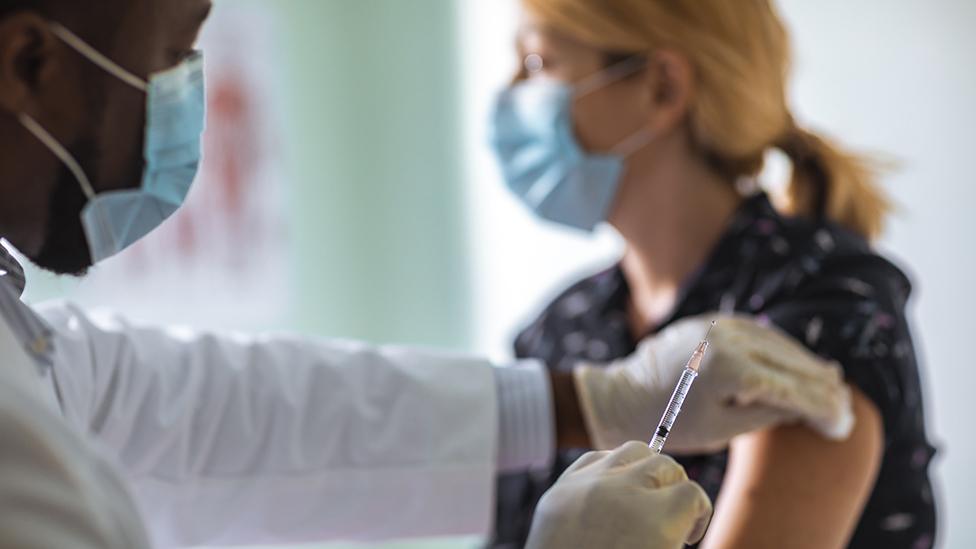
- Published7 January 2021
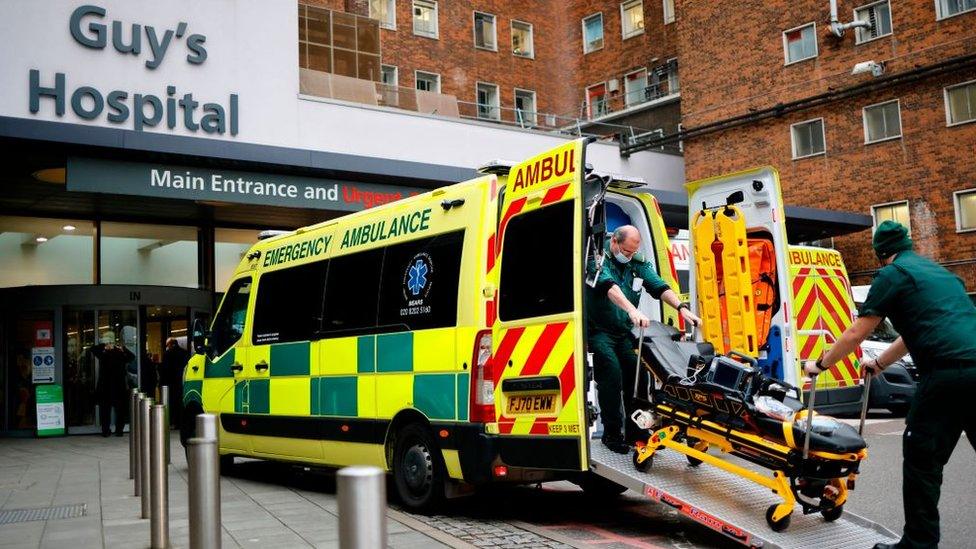
- Published5 January 2021
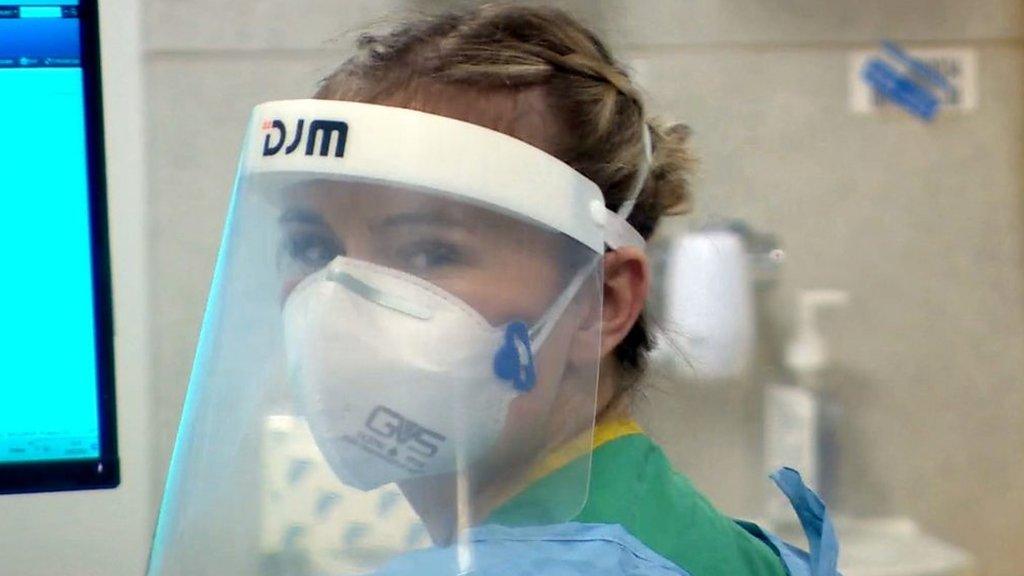
- Published4 January 2021
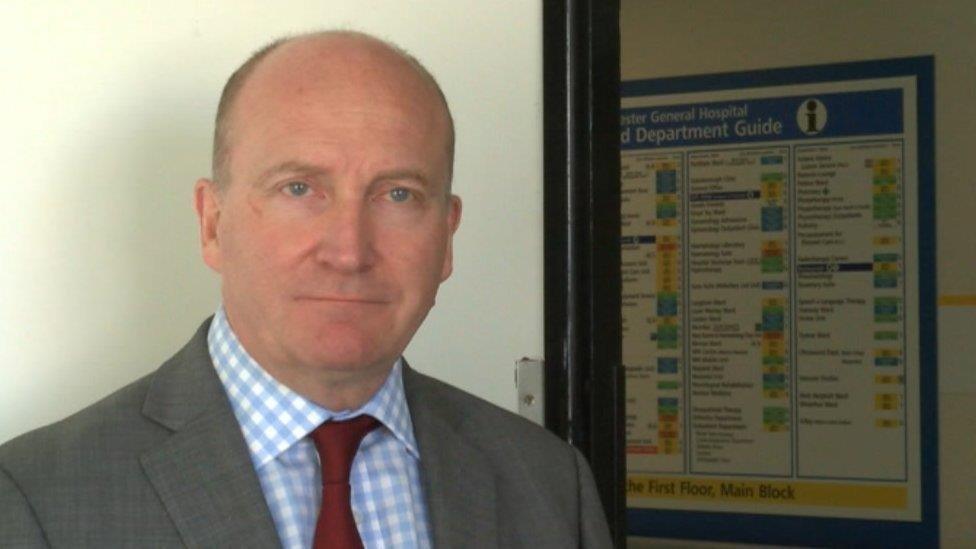
- Published6 January 2021
